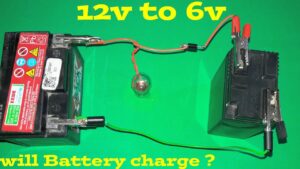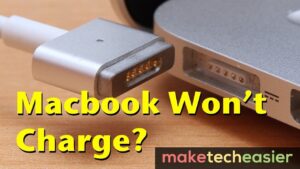How long should you charge a lithium-ion battery? This simple yet crucial question often plagues the minds of tech enthusiasts and device owners. Understanding the charging time for your lithium-ion battery is essential to ensure its optimal performance and longevity. In this article, we will delve into the factors that affect the charging time and provide you with practical tips on how to get the most out of your battery. So, if you’ve ever wondered how long to charge a lithium-ion battery, you’ve come to the right place. Let’s dive in!
How Long to Charge a Lithium Ion Battery: A Comprehensive Guide
Lithium-ion batteries have become the go-to power source for a wide range of electronic devices, from smartphones and laptops to electric vehicles. These batteries offer high energy density, longer lifespan, and better performance compared to their predecessors. However, to ensure optimal performance and longevity, it’s crucial to understand how long to charge a lithium-ion battery. In this comprehensive guide, we will explore the factors that affect charging time, the recommended charging durations, and tips to extend the battery’s overall lifespan.
The Basics of Lithium-Ion Battery Charging
Before delving into the specifics of charging time, let’s briefly understand how lithium-ion batteries work. These batteries generate electrical energy by moving lithium ions between two electrodes: the anode and cathode. When the battery is charged, lithium ions move from the cathode to the anode, and during discharge, the ions move in the opposite direction.
To charge a lithium-ion battery effectively, it’s important to provide the right amount of voltage and current. The two primary stages of lithium-ion battery charging are:
1. Constant Current (CC) Charging: In this stage, the battery is charged using a constant current until it reaches a specific voltage threshold.
2. Constant Voltage (CV) Charging: Once the battery reaches the voltage threshold, the charger switches to a constant voltage mode to prevent overcharging. During this stage, the current gradually tapers off.
Factors Affecting Charging Time
The duration required to charge a lithium-ion battery is influenced by various factors. Understanding and considering these factors can help you estimate the approximate charging time accurately. Some of the key factors affecting charging time include:
1. Battery Capacity: The capacity of a lithium-ion battery is measured in milliampere-hours (mAh). Higher capacity batteries generally take longer to charge.
2. Charger Output Current: The output current of the charger, usually measured in amperes (A), determines how quickly the battery charges. Higher output currents result in faster charging.
3. Charge Level: The current charge level of the battery plays a role in charging time. Batteries at higher charge levels may take longer to charge compared to those at lower levels.
4. Temperature: The ambient temperature affects charging time. Li-ion batteries charge most efficiently at moderate temperatures between 10°C to 30°C (50°F to 86°F). Charging at extreme temperatures can slow down the charging process.
5. Battery Age and Condition: As lithium-ion batteries age, they gradually lose their capacity. Older batteries may take longer to charge due to reduced charging efficiency.
Recommended Charging Durations
While the exact charging duration may vary depending on the factors mentioned above, here are some general guidelines for different devices and battery capacities:
1. Smartphones and Tablets:
– 1500mAh to 2500mAh battery: Approximately 1.5 to 2.5 hours
– 3000mAh to 4000mAh battery: Around 2.5 to 3.5 hours
– 5000mAh or higher battery: About 4 to 5 hours or more
2. Laptops:
– 3000mAh to 4000mAh battery: Roughly 2 to 3 hours
– 5000mAh to 6000mAh battery: Approximately 3 to 4 hours
– 7000mAh or higher battery: Around 4 to 5 hours or longer
3. Electric Vehicles (EVs):
– 40kWh battery: Estimated charging time of 8 to 10 hours (using a standard charger)
– 100kWh battery: Approximately 24 to 30 hours (using a standard charger)
Tips to Optimize Charging Time and Battery Lifespan
To ensure efficient charging and extend the overall lifespan of your lithium-ion battery, consider the following tips:
1. Use the Right Charger: Always use the charger provided by the device manufacturer or a compatible third-party charger. Using an incompatible charger may lead to slow charging or damage the battery.
2. Avoid Fast Charging for Prolonged Periods: Fast charging technologies allow for quick top-ups, but prolonged use of fast charging can generate excess heat and reduce the battery’s lifespan. Use fast charging sparingly.
3. Avoid Full Discharge: Frequent full discharges can strain the battery. It’s advisable to avoid completely draining the battery and instead aim for partial discharges followed by regular recharging.
4. Keep the Battery Cool: Avoid exposing your device to high temperatures while charging. Extreme heat can degrade the battery and lead to slower charging speeds.
5. Unplug After Full Charge: Once your device reaches full charge, it’s recommended to unplug the charger. Leaving it connected for extended periods may cause a slight overcharge, which can impact the battery’s longevity.
6. Store Batteries Properly: If you’re not using a device for an extended period, ensure the battery charge level is around 50%, as storing a fully charged or discharged battery can lead to capacity loss over time.
Knowing how long to charge a lithium-ion battery is essential for maximizing its performance and lifespan. While charging durations may vary based on factors such as battery capacity, charger output, and charge level, following the recommended guidelines can help ensure efficient charging. Additionally, adopting best practices like using the right charger, avoiding full discharges, and storing batteries properly can contribute to maintaining a healthy battery in the long run. By understanding the nuances of lithium-ion battery charging, you can make more informed decisions to optimize your device’s battery life.
Frequently Asked Questions
How long does it take to charge a lithium-ion battery?
Charging time for a lithium-ion battery can vary based on several factors, including the capacity of the battery, the charger’s output power, and the current charge level of the battery. On average, it takes about 2 to 4 hours to fully charge a lithium-ion battery.
Can I use a higher voltage charger to charge my lithium-ion battery faster?
No, it is not recommended to use a charger with higher voltage than what is specified for your lithium-ion battery. Using a higher voltage charger can cause overheating and potentially damage the battery. It is always best to use the charger that is designed specifically for your battery.
How do I know when my lithium-ion battery is fully charged?
Most devices with lithium-ion batteries have a built-in mechanism to indicate when the battery is fully charged. This can be in the form of a LED light changing color, a notification on the device’s screen, or a charging icon disappearing. It is important to follow the manufacturer’s instructions or refer to the device’s manual to understand the specific charging indicators.
Does charging my lithium-ion battery overnight damage it?
Modern lithium-ion batteries are designed to prevent overcharging, so leaving your device plugged in overnight is generally safe. However, it is still recommended to unplug the device once it reaches full charge to conserve energy and prevent unnecessary strain on the battery.
Can I use my device while it is charging?
Yes, you can typically use your device while it is charging. However, keep in mind that using power-intensive applications or features may slow down the charging process. It is also important to ensure the device remains ventilated during charging to prevent overheating.
Final Thoughts
Charging a lithium-ion battery is a crucial aspect of its performance and longevity. The charging time for a lithium-ion battery depends on various factors, including its capacity, charging method, and the device being used. On average, it takes anywhere from 1 to 4 hours to fully charge a lithium-ion battery. However, it is important to note that fast charging options can significantly reduce this time, with some devices offering up to 50% charge in just 30 minutes. To ensure optimal performance and safety, it is always recommended to follow the manufacturer’s guidelines and use the provided charger. Whether you’re charging your smartphone, laptop, or electric vehicle, understanding how long to charge a lithium-ion battery is crucial in maximizing battery life and maintaining device functionality.



